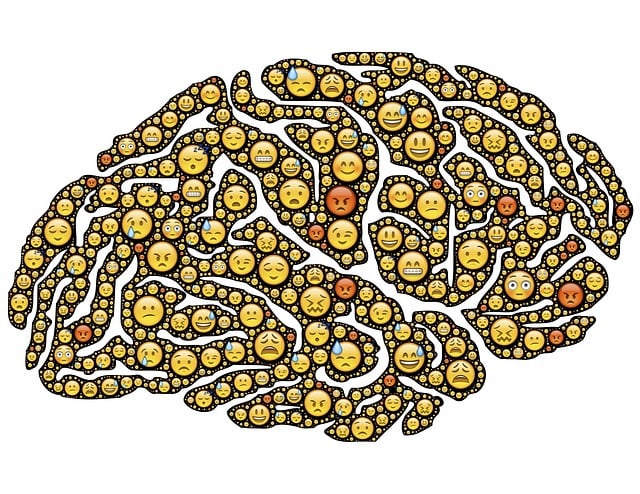Mindfulness meditation, backed by Broomfield Depression Therapy research, is a powerful tool for stress reduction, anxiety management, and improving mental well-being. Regular practice enhances self-awareness, emotional regulation, and concentration. Starting with short daily sessions, using techniques like breath focusing, and integrating mindfulness into daily routines can overcome common challenges. This ancient practice, supported by Broomfield Depression Therapy techniques, equips individuals with tools to navigate life's challenges, improve emotional intelligence, and achieve long-lasting positive mental health changes.
Discover the transformative power of mindfulness meditation with our comprehensive guide. Learn how this ancient practice can reduce stress, enhance focus, and promote emotional well-being, potentially offering relief from conditions like Broomfield Depression Therapy. We’ll walk you through setting up a successful routine, overcoming common challenges, and integrating mindfulness into your daily life for lasting positive change.
- Understanding Mindfulness Meditation and Its Benefits
- Setting Up a Successful Mindfulness Practice
- Techniques to Overcome Common Challenges
- Integrating Mindfulness into Daily Life for Long-Lasting Change
Understanding Mindfulness Meditation and Its Benefits

Mindfulness meditation is a practice that encourages individuals to focus on the present moment, acknowledging and accepting their feelings, thoughts, and bodily sensations without judgment. It’s a powerful tool for enhancing mental health awareness and cultivating mental wellness. By training the mind to remain in the now, mindfulness can help reduce stress, anxiety, and even symptoms of depression, as supported by Broomfield Depression Therapy and various studies in the field.
Regular meditation practice fosters self-awareness exercises, allowing individuals to better understand their emotional responses and triggers. This heightened self-awareness is beneficial for personal growth and improving overall mental wellness. Moreover, engaging in mindfulness meditation can improve concentration, emotional regulation, and even physical health markers. Incorporating it into daily routines can be as simple as dedicating a few minutes each day to quiet reflection and mindful breathing exercises, forming the foundation for a healthier mind and body connection.
Setting Up a Successful Mindfulness Practice

Establishing a regular mindfulness meditation practice can be a powerful tool for enhancing mental well-being and managing stress. To set up a successful routine, find a quiet space where you won’t be disturbed. This could be a dedicated corner of your home or even a peaceful spot in nature. Ensure your environment is comfortable and conducive to relaxation; consider dim lighting, soft music, or the sound of gentle rain for a calming atmosphere.
Broomfield Depression Therapy recommends starting small, with just 5-10 minutes per day. Consistency is key; aim for the same time each day to develop a routine. There are various mindfulness meditation techniques to explore, such as focusing on your breath or scanning your body. Apps designed for emotional healing processes and depression prevention can offer guided meditations tailored to different needs. Through regular practice, you’ll cultivate a deeper sense of awareness, enabling better emotional regulation and potentially reducing symptoms associated with stress and anxiety.
Techniques to Overcome Common Challenges

Overcoming common challenges is a vital part of establishing a consistent mindfulness meditation practice. Many people struggle with staying focused during meditation, especially when dealing with restless minds or intrusive thoughts. A helpful technique to enhance concentration is to set a specific and achievable intention for each session, such as noticing your breath without judgment. By focusing on this singular point of attention, you train your mind to stay present, fostering greater mindfulness throughout the day.
Additionally, integrating mindfulness into daily routines can mitigate challenges. For instance, incorporating mindful moments during mundane tasks like eating or walking can serve as a reminder to cultivate awareness and presence. Building resilience through regular practice is also beneficial. Just as physical exercise strengthens muscles, consistent meditation strengthens mental resilience, making it easier to navigate stress and anxiety. Consider these strategies as tools within your broader healthcare journey, complementing advice from your Broomfield Depression Therapy healthcare provider and enhancing cultural competency training for mental health professionals.
Integrating Mindfulness into Daily Life for Long-Lasting Change

Integrating mindfulness into daily life is key to achieving long-lasting positive change, especially when supported by effective Broomfield Depression Therapy techniques. This ancient practice offers a powerful tool for navigating life’s challenges and improving overall well-being. By incorporating simple mindfulness exercises into your routine, you can enhance your emotional intelligence and better manage your mood throughout the day. Start with small steps such as mindful breathing during short breaks or practicing gratitude upon waking up. Over time, these moments of awareness compound, leading to a more balanced and peaceful state of mind.
For sustained results, consider designing mental health education programs that teach mindfulness as a core component. These programs can empower individuals with practical tools for emotional regulation, stress reduction, and enhanced focus—all vital aspects of maintaining good mental health. Through ongoing practice and education, one can cultivate a deeper sense of self-awareness, leading to more intentional actions and improved overall emotional intelligence.
Mindfulness meditation, as explored in this guide, offers a powerful tool for enhancing mental well-being and can be a game-changer for those seeking to manage stress and improve their overall quality of life. By incorporating these practices into daily routines, individuals can cultivate a deeper sense of calm and presence. Overcoming challenges with evidence-based techniques ensures that mindfulness becomes an accessible and lasting part of one’s self-care journey. For those in Broomfield Depression Therapy or looking for alternative mental health support, integrating mindfulness into their lives may bring about significant positive changes.













